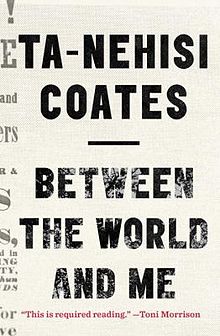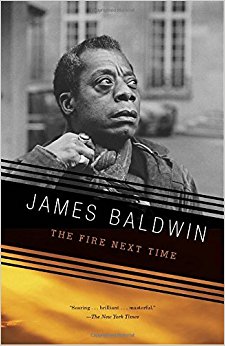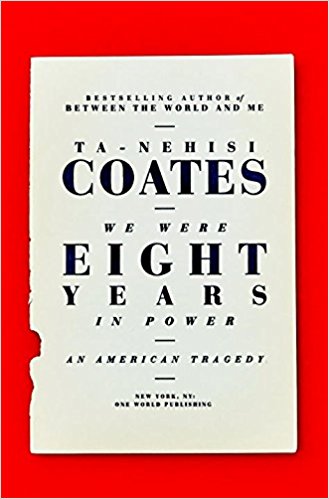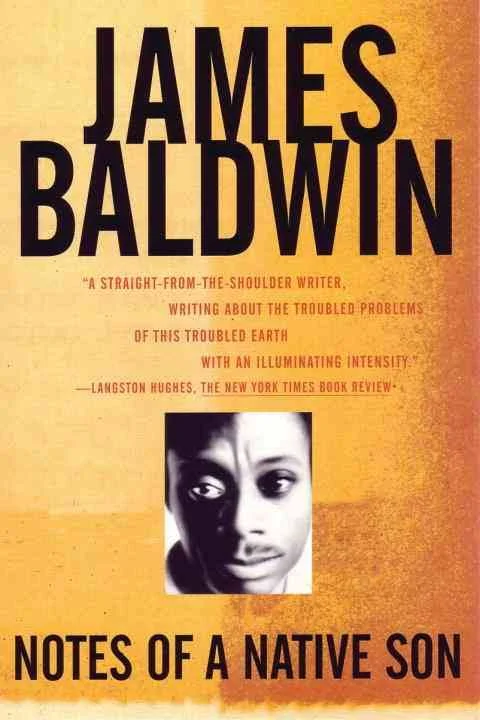So please, oh please, we beg, we pray / Go throw your TV set away / And in its place you can install / A lovely bookshelf on the wall…
To Jorge Luis Borges, paradise held a library.
To James Baldwin, books were the ultimate connectors, empathizers:
You think your pain and your heartbreak are unprecedented in the history of the world, but then you read. It was books that taught me that the things that tormented me most were the very things that connected me with all the people who were alive, who had ever been alive.
Miss Bingley used them fraudulently in Pride and Prejudice to try and attract Mr. Darcy. Instead of actually reading—her book, incidentally, was the second volume of the one he was reading—she was watching him do so, asking him questions, or staring at his page. He’d answer curtly and keep reading. So, at last she tried one final measure:
How pleasant it is to spend an evening in this way! I declare after all there is no enjoyment like reading! How much sooner one tires of any thing than of a book! When I have a house of my own, I shall be miserable if I have not an excellent library.
Mr. Darcy wouldn't be Mr. Darcy if he found behavior like that attractive—he didn't here either—and Miss Bingley got bored and moved on.
Hermione—perhaps the queen of seeing the importance in books—talks of their brilliance (and how they fared against other important things) quite early on, in one of the earliest trying moments. I must say, I agree wholeheartedly, and may even expand on her list:
"Hermione!"
"Harry—you're a great wizard, you know."
"I'm not as good as you," said Harry, very embarrassed, as she let go of him.
"Me!" said Hermione. "Books! And cleverness! There are more important things—friendship and bravery and—oh Harry—be careful!”
And maybe my favorite mention of books this past year was a scene from The Wind in the Willows, when the Sea Rat leaves for good and the Rat is sad and Mole tries to cheer him up with some words and some poetry:
Presently the tactful Mole slipped away and returned with a pencil and a few half-sheets of paper, which he placed on the table at his friend's elbow.
"It's quite a long time since you did any poetry," he remarked. "You might have a try at it this evening, instead of—well, brooding over things so much. I've an idea that you'll feel a lot better when you've got something jotted down—if it's only just the rhymes."
The Rat pushed the paper away from him wearily, but the discreet Mole took occasion to leave the room, and when he peeped in again some time later, the Rat was absorbed and deaf to the world; alternately scribbling and sucking the top of his pencil. It is true that he sucked a good deal more than he scribbled; but it was joy to the Mole to know that the cure had at least begun.
Tsundoku—a Japanese word referring to all the books that are bought and never read. This will surely apply to me someday, my home library a series of over-stacked shelves, my floor and bedside starting to hold their own as well. And so it is, and so it will always be, though I must pause to wish: a beautifully windowed cabin amidst trees that change color in autumn and smell minty in winter, with a fireplace and a library that holds all my books, and a porch overlooking water that is swimmable unless there’s snow everywhere, and a cozy cozy warm bed. One day, one day.
Ah well.
In the meantime I’ll continue my Sisyphean attempt to out-duel tsundoku, and in that vein, would like to share some of the favorite writers I sat with last year—I’ve categorized them the way I best see fit. Each book lived with others in my backpack for a while, each has markings they weren’t bought wearing, and with the arrival of this post, each will now return to sit alongside their friends in my shelves, just like old times. Home at last.
Favorite Author I Met for the First Time
Yaa Gyasi: "Homegoing"
I tackled this one early in the year, a book I found beautifully written. It's the story of two sisters and their different lineages, jumping between Ghana and America. I began it on a flight from New York to Moscow (on my way to spend a couple of weeks with my Mom in Greece), and couldn't put it down. Each chapter is a different character, each voice so powerfully distinct and evolved. Take this:
Before the lashes, her mother had called her Maame, after her own mother, but the master had whipped Esi for that too, whipped her until she cried out "My Goodness!"—the words escaping her without thought, no doubt picked up from the cook, who used to say it to punctuate every sentence. And because those had been the only English words to escape Esi's mouth without her struggling to find them, she believed that what she was saying must have been something divine, like the gift of her daughter, and so that goodness had turned into, simply, Ness.
Stories within stories are the best kinds of stories. I'll always remember the quiet, blue beach on the Sinai Peninsula in Egypt that I finished it on.
My HAPPIEST Reintroduction
J.K. Rowling: "The Tales of Beedle the Bard" & "Quidditch Through the Ages"
When I arrived in Austin for New Year's weekend, a few of my friends were already there and one of them had apparently stopped the others from talking about Harry Potter because she said that we'd be talking about it "a LOT when Joe gets here." And to that, I say (1) yes yes THANK you, and (2) damn right. This was also an earlier-in-the-year read, and I have distinct spring-time memories of both. Oh the beautiful world of Harry Potter and its many lasting effects.
I could have chosen a number of other writers to put here. Joan Didion comes to mind, as does Edwidge Danticat and Elmore Leonard. The challenge, though, is that a reintroduction to J.K. Rowling and her gorgeous way with words and worlds and characters will always be tough to beat.
Best Books to Read Together
Ta-Nehisi Coates: "Between the World and Me" (or, "We Were Eight Years in Power")
James Baldwin: "The Fire Next Time" (or, "Notes of a Native Son")
Well, this was the biggest no-brainer of all, Coates in many ways the recipient of whatever torch Baldwin had been trying to pass for decades. This website is littered with links to podcasts where both are interviewed or discussed. The number of references to their writing—its outright beauty and power, it's necessary provocation and depth, its relevance then and now—exist almost to the point of reader fatigue, I imagine. But I continue to argue that with race being the definitive force that has both shaped the image and function of America, no complete conversation can exist without a nod towards either of these two men (among quite a few others). This blurb is neither to cast them as the only voices nor the loudest ones—not at all—it's to say that one should be read with the other. In doing so, I believe, it becomes easier to understand similar themes, experiences, and questions. Some which have changed, many which have not, and plenty of others which continue to linger, unsolved, brushed aside, ignored, or denied.
Best Book of Poetry
Mary Oliver: "Owls and Other Fantasies"
On my personal Instagram account I have a whole number of saved photos, and a very specific album just for owls (larger than everything other than my penguins and baseball and cabins ones). There was a time before Christmas when the Audobon Society did a whole week's worth of posting about snowy owls (ahem, Hedwig), and I must have saved the lot. And most recently, I spent part of Christmas Day with my brother having a few afternoon beers at a place in my neighborhood called "The Owl Bar." They're such magnificent animals, I think, and when you take something I love (owls) and combine them with something else I love (Mary Oliver's poetry), it appears to be a beautiful combination. It certainly was. Here, take the inside of my book—likely tells you all you need to know:
Note after note of all the beautiful things that go from Mary Oliver's mind to her pen.
Favorite Collection of Short Stories
Denis Johnson: "Jesus' Son"
Here are some of the joys of reading:
- Discovering new voices—not new tones or phrases, mind you, though both can also be quite lovely—new voices. Things being said in ways you've never heard them said before.
- Being challenged as a result: slowing down, re-reading, spending time between chapters and stories.
- Feeling like you have a different relationship with English, the structuring of sentences, the dexterity of language, the use of words.
- Hearing an audio version of something read in a way that completely changes how you read it on paper.
The only thing I'd add to these four would be one of my absolute greatest loves in life: reading something with someone and talking about it all. I got to do that with my brother with these stories, and I made a note of it in the front of my book—an already incredible collection of stories made that much more meaningful.
Oh, and how's this for a closing line:
And you, you ridiculous people, you expect me to help you.
Best Audiobook
Maya Angelou: "I Know Why the Caged Bird Sings"
Two things relevant to this category happened this year that are worth noting: first, I fell in love with Maya Angelou—her voice, her story, the way she uses words, the way she loves sherry, her life. I listened to as many interviews with her as I could find, smiling smiling smiling as she spoke, the word beautiful perpetually coming to mind.
The second thing that happened was a new decision: any audiobook she ever recorded became something I wanted to listen to. And to anybody who wants a recommendation, start with this one. There are moments when she sings (how gorgeous), others when she tells some harrowing stories with such grace, and so many where she just has you like she has me, grinning and laughing, her voice like a hug.
Best Author to Read, Then Hunt Down EVERY Interview
Junot Díaz: "This is How You Lose Her"
Of course, you could say this about everything he wrote, this was just the one of his that stood out most to me this year. His characters are often morally bankrupt, searching, though they never wallow in self-pity. They continually sabotage themselves and are left in rather sad positions. They are forever in search of identity, find themselves between cultures, often pummeled into silence. And throughout—binding it all—is a truly spectacular deployment of language.
In my list of podcasts, you'll see a number that feature him, either as an interviewee or as a reader. I can honestly say that of all authors I've read, he is the one great made even greater by the way he speaks—his thought and care with each sentence is something that would make James Baldwin proud, and he leaves you full. Part of me feels sad that he takes his time between books, and the other part of me is quite happy knowing how wonderful whatever's next will be.
Best Baseball Book
Bob Luke: "Integrating the Orioles"
I have an annual tradition to read one baseball book (at least). This year I read two, and this was the clear-cut winner. In a year where I spent a great deal of time reading about the Civil Rights Movement and America throughout the 50s and 60s—and, of course, the lingering racial strife today—this book sat right in the middle of my baseball book/race issues Venn diagram.
I should be clear: it's relatively dry and to enjoy it, you must really love baseball (and the way it both moved American civil rights forward and reacted to the forces of the time). But if you can check those boxes, then get after it. I grew up going to Orioles games (both at Memorial Stadium and the more recent Oriole Park at Camden Yards), and though my knowledge of the city is relatively thin, this was a terrific examination of both through a racial lens. You'll madly respect Jerold Hoffburger (and feel a certain humanitarian gratitude each time you sip a Natty Boh), decry the lingering effects of rampant housing and school segregation on a city, realize that similar political forces were at play all across the country, laugh at the absurdity of Earl Weaver (when outfielder Pat Kelly was irritated that Weaver was not giving him enough time for a pregame prayer meeting, he said, “Earl, don't you want us to walk with the Lord?” Weaver replied, "I'd rather you walk with the bases loaded."), and if you're anything like me, you'll likely continue to lament the fact you never got to see Brooks Robinson play third base.
Best Kids Book That is in NO WAY Just a Kids Book
E.B. White: "Charlotte's Web"
When E.B. White recorded the audio version, it supposedly took him 19 times to read through a part at the end without crying. And goodness, I can see why.
The little moments of beauty:
Charlotte's web never looked more beautiful than it looked this morning.
Or, when Wilbur finds himself outside his fence for the first time and wonders aloud where he should go:
"Anywhere you like, anywhere you like," said the goose. "Go down through the orchard, root up the sod! Go down through the garden, dig up the radishes! Root up everything! Eat grass! Look for corn! Look for oats! Run all over! Skip and dance, jump and prance! Go down through the orchard and stroll in the woods!"
The flashes of Mary Oliver, when White is describing birdsong in the distance:
The song sparrow, who knows how brief and lovely life is, says, Sweet, sweet, sweet interlude; sweet, sweet, sweet interlude.
And then this. May we all have a Charlotte in our lives:
“Why did you do all this for me?" he asked. "I don't deserve it. I've never done anything for you."
"You have been my friend," replied Charlotte. "That in itself is a tremendous thing. I wove my webs for you because I liked you. After all, what's a life, anyway? We're born, we live a little while, we die. A spider's life can't help being something of a mess, with all this trapping and eating flies. By helping you, perhaps I was trying to lift up my life a trifle. Heaven knows anyone's life can stand a little of that."
Some pig indeed. According to the inside of my cover, I finished it on the Q train crossing the Manhattan Bridge. "Autumn has arrived," I wrote.
Best Book That Became a Movie That I Saw and Enjoyed Only Because a Few Very Specific Conditions Were Met
Agatha Christie: "Murder on the Orient Express"
Well, this is absurd because I only saw one movie this year (I saw a couple of documentaries at home and a good amount of standup comedy, but definitely only one movie in the theater). It's even MORE ridiculous because by absolutely no metric whatsoever does the movie stack up to the book. But I'm including it because I saw it over Thanksgiving with my sister and her boyfriend—a couple of months after my parents had taken a road trip around Southwest England, through Agatha Christie territory—and I snuck in some celebratory post-Thanksgiving champagne that was successfully and quietly popped and poured and cheers-ed, along with some wine and snacks, and kept leaning over to each other whispering things like, no WAY does this happen in the book and Poirot does NOT have that lingering obsession with his wife and we'll have to look that up later. My point, I suppose, is that books will likely always reign supreme for me, but I will GLADLY see a movie if a few conditions are met.
My Favorite Fiction
George Saunders: "Lincoln in the Bardo"
I read this on the way to and from Spring Training—a trip I took to Florida with my brother—and immediately fell in love. George Saunders already occupied a rather lofty spot on my mantle (his short stories are so staggeringly exceptional, so darkly hilarious), so to encounter his first full-length novel was something that blew me away. There is no way I can pay it the heed it deserves with a few drawn quotes, so I won't do that. What I will do instead is encourage two things:
- Read his short stories first: I adored Tenth of December, Pastoralia, and CivilWarLand in Bad Decline. Whatever you choose, you really ought to begin with his shorter fiction.
- Listen to any interview he gives. I've linked to a few in my list of podcasts, and I find them immensely rewarding. He talks about his approach to writing, what drives him, his fears, his curiosities—a rare insight into the mind of someone who wasn't always a National Book Award winning creative writing professor at Syracuse.
My Favorite Nonfiction
Robert Caro: "The Power Broker"
I cannot think of a greater living historian, a better biographer. He takes a subject—urban planning under the supervision of a rather tucked-away, unelected official in New York throughout the middle part of the 20th century—and turns it into a lasting, seminal, must-read 1,000-page work of pure genius. His writing is beautiful and tireless, his research is evident in every paragraph, and he has changed my relationship with the city where I live. No longer can I walk past buildings, run across bridges, wait for a delayed subway train running on decaying systems, sit in any sort of traffic, walk through Washington Square Park, put my name in the Shakespeare in the Park lottery, consider the legacy of Al Smith, give an answer to that incredibly common question, What's your favorite press conference? or even begin the New York City Marathon—none of these, without thinking of this book. Mind you, it is certainly an investment, and I doubt it's something everyone would so tremendously enjoy. But these are the sorts of things I love.
This year, on my birthday, I scored a couple of tickets to The New Yorker Festival, and my brother and I sat a couple of rows back in a small theater watching Robert Caro answer questions and tell stories. Then we had martinis and chatted about it all. He's an old man now, one whose legacy is cemented, whose contribution to history is lasting: a sort of modern-day Boswell, I suppose, whose hundreds and hundreds of thousands of published words—in both writing and interview—have made me reconsider what it means to truly examine a life, a history.
The One Book I'd Recommend To Everyone, Without Question
Mary Beard: "Women & Power"
This was the final book I read in 2017, and it put a perfect—and brilliant close—to a year of wonderful reading. How about this: take the greatest living classicist, ask her two give two exceptional speeches about the role of women in power over the course of the entirety of western history, transcribe those speeches into an unbelievably palatable hundred pages, buy that book, wrap that book (and maybe Men Explain Things To Me) along with a pen, and give it to every single person in your life.
From the moment she begins—with a story about The Odyssey, which she identifies as not only one of Western literature's more essential writings, but also the earliest example of a man (a boy, really) telling a woman (his mother) to go to her room and shut up—she's got you snared. And grippingly. Example after example, and in a sensible, citable, usable, shareable, mentionable way. This is something we all have the time to read, especially now.
BONUS: The Author Who Has Taken Her Place Next to Antoine de Saint-Exupéry in My Personal Pantheon of Memorialization Because Now She's on a Pair of My Socks, Too
This award goes to...
Any guesses?
Onward to 2018!


















